EURO 2024 Preview: Germany hoping to go the distance on home soil
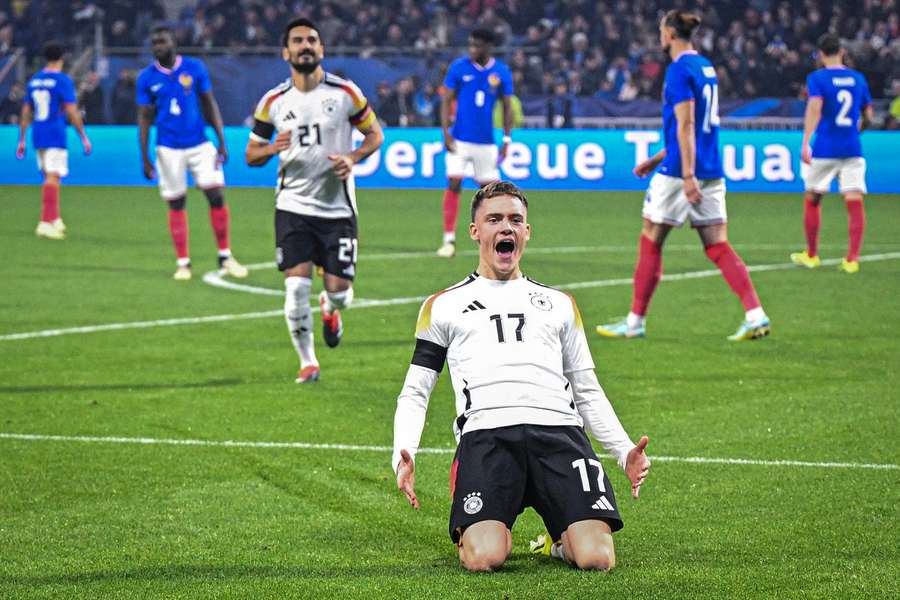
Julian Nagelsmann's side are one of the favourites to win the trophy, but what are the DFB Team's strengths and weaknesses? Who are the key players? Are they really ready to go all the way? Flashscore has taken a closer look at the German national team's chances.
Tough decisions
Nagelsmann was only appointed as the national team coach in October last year. The former Bayern manager initially took over a squad assembled by his predecessor Hansi Flick.
After a disappointing international double in the autumn (3-2 defeat to Turkey and 2-0 loss to Austria), Nagelsmann changed his approach.
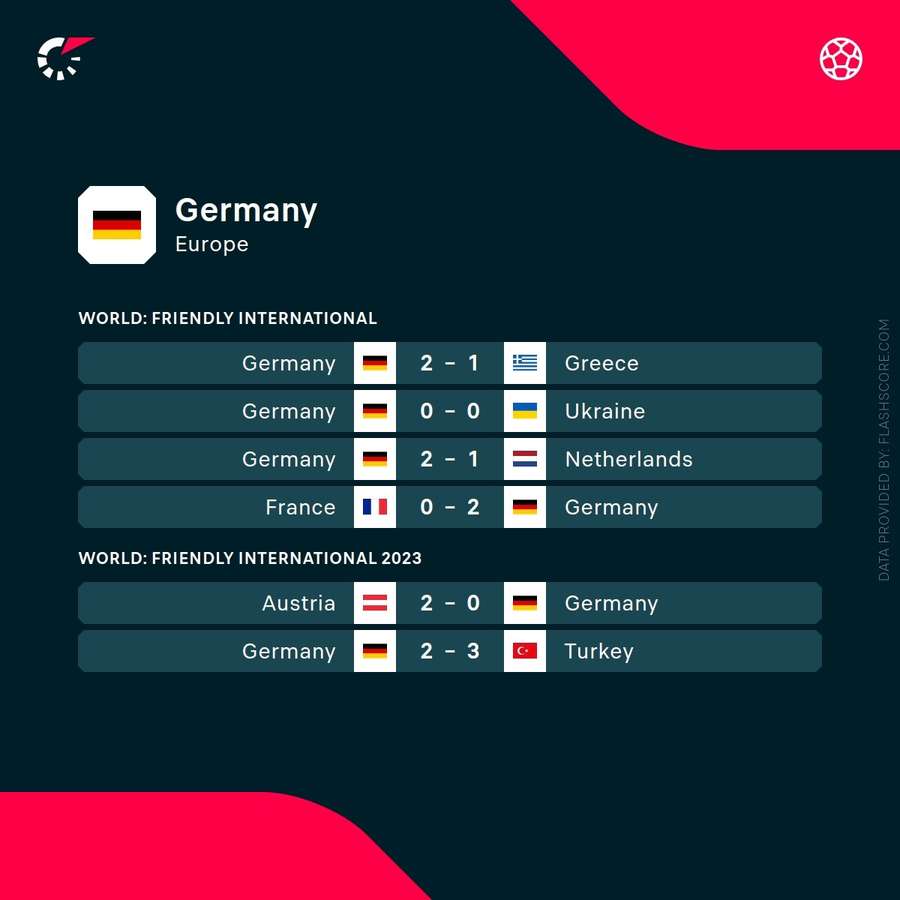
The 37-year-old made some tough decisions and left out Leon Goretzka as well as Mats Hummels. He also moved Joshua Kimmich from central midfield to the right side of defence.
Manuel Neuer was guaranteed a regular place despite a lengthy spell on the sidelines with injury, while Marc-Andre ter Stegen was relegated to the substitutes' bench for good.
In the spring, Nagelsmann worked hard to bring Toni Kroos out of retirement. Surprisingly, the 34-year-old agreed, and the playmaker will form the centrepiece of the team at the European Championship together with Manuel Neuer and Thomas Muller.
The squad is complemented by a number of newcomers with little international experience - such as Maximilian Mittelstadt and Pascal Gross - and two wonderkids: Florian Wirtz and Jamal Musiala.
Key players
The guarantee of a regular place for Manuel Neuer is by no means low-risk. In the second half of the season, the 38-year-old was often a shadow of his former self.
Neuer had a few wobbles in the Bundesliga and the Champions League. Nevertheless, Nagelsmann is fully committed to the veteran. His strong play with the ball at his feet and his risky positional play could complement Germany's high defensive line.
A place in the starting 11 has also been reserved for Toni Kroos. He should serve as a calming influence for his team-mates. In the past three LaLiga seasons, the central midfielder has achieved a pass rate of over 90%. He is also the player with the most line-breaking passes in Europe.
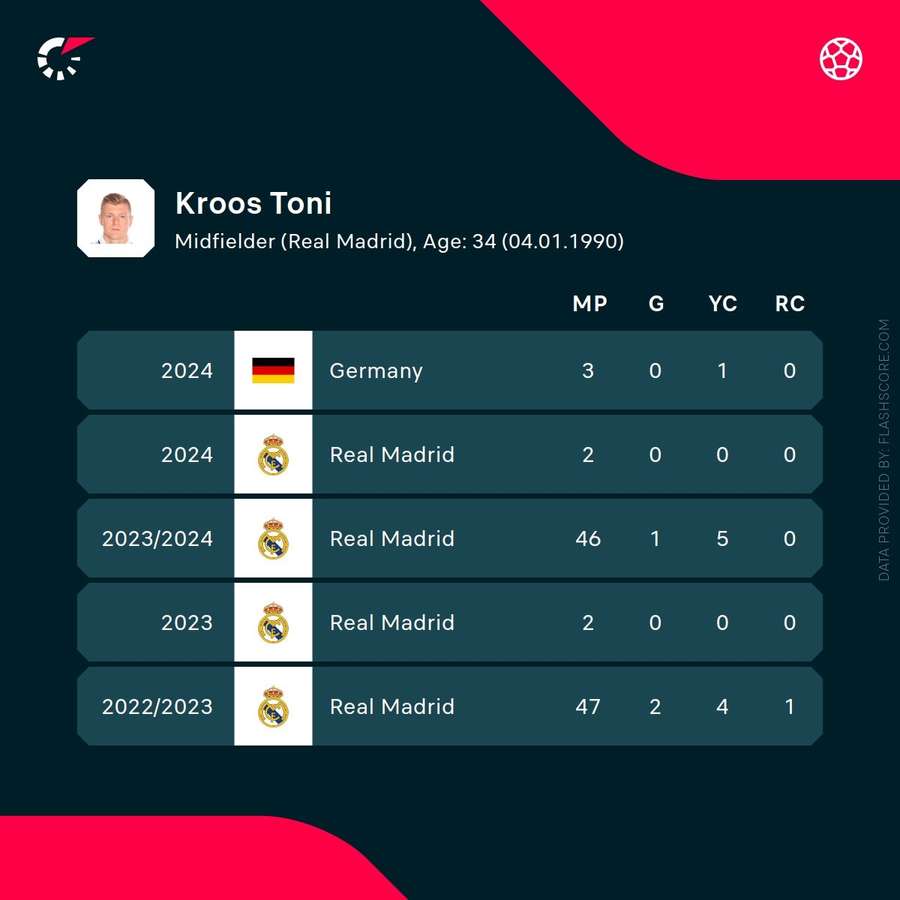
Meanwhile, Florian Wirtz and Jamal Musiala are expected to provide a threat in the attacking third. The two 21-year-olds have some extraordinary skills. Thanks to their close ball control, they are always capable of troubling deep-lying opponents and throwing them off balance.
Tactics and formation
Nagelsmann favours a basic 4-2-3-1 formation. In general, the German national team opts for a dominant style of play focused on possession.
This approach comes with a certain danger: they are extremely susceptible to counter-attacking situations. To counteract this, the national team coach favours quick centre-backs: Jonathan Tah and Antonio Rüdiger. Both generally hold their position in a disciplined manner.
In the build-up play, the duo are supported by one of the two central midfielders. Kroos, for example, likes to drop into the defensive line, while his partner in the centre - preferably Robert Andrich - holds position.
Alternatively, he is supported by one of the attacking players. Although Kai Havertz is a centre forward on paper, he often drops into midfield when building up play.
When in possession, full-backs Kimmich and Mittelstadt prefer to position themselves high and wide. This is intended to draw the opposition out. The wingers - most likely Witz and Musiala - will then position themselves in the centre half-spaces.
Strengths of the squad
The DFB Team have extremely high individual quality. A look at the Champions League final between Real Madrid and Borussia Dortmund is proof of this. Four German European Championship participants were on the pitch from the start (Schlotterbeck, Fullkrug, Kroos and Rudiger).
The national coach has a team at his disposal that likes to keep hold of possession. A high level of ball circulation, quick, direct passing and the bravery to take risks.
The internal spirit is also a real strength. Nagelsmann told his players in the spring who he considered to be candidates for the first team and who was only intended as a supplementary player. Holding these talks was certainly not easy. But the unusual approach has one major advantage: everyone knows exactly where they stand.
In the national team, there is generally very little time available to study moves or to mould a functioning, homogeneous team from a large number of individual players. Through his clear communication, Nagelsmann dealt with several issues at an early stage.
The mood in his own country has now improved considerably. Within just a few months, Nagelsmann and the DFB marketing department managed to create a new sense of unity.
A few days ago, 15,000 fans attended a public training session in Jena. Once genuine European Championship euphoria has been created, nothing stands in the way of a new fairytale being written this summer.
Weaknesses of the squad
Germany's weaknesses are primarily of a tactical nature. As already mentioned, Nagelsmann favours a dominant and courageous style of play.
Without the ball, the DFB Team is characterised by high pressure on the player in possession. The opposing full-back is often chosen as the pressing trigger.
The winger attacks the opponent in possession of the ball, while the full-back close to the ball applies frontal pressure. One of the two full-backs also positions themselves towards the touchline in such situations.
If the pressing works and the team manages to win the ball back, this will most likely lead to a dangerous goalscoring opportunity. However, if the pressing is unsuccessful, the opponent has a lot of space available in the centre. This, in turn, can be played into quite easily and used as the basis for a dangerous counter-attack.
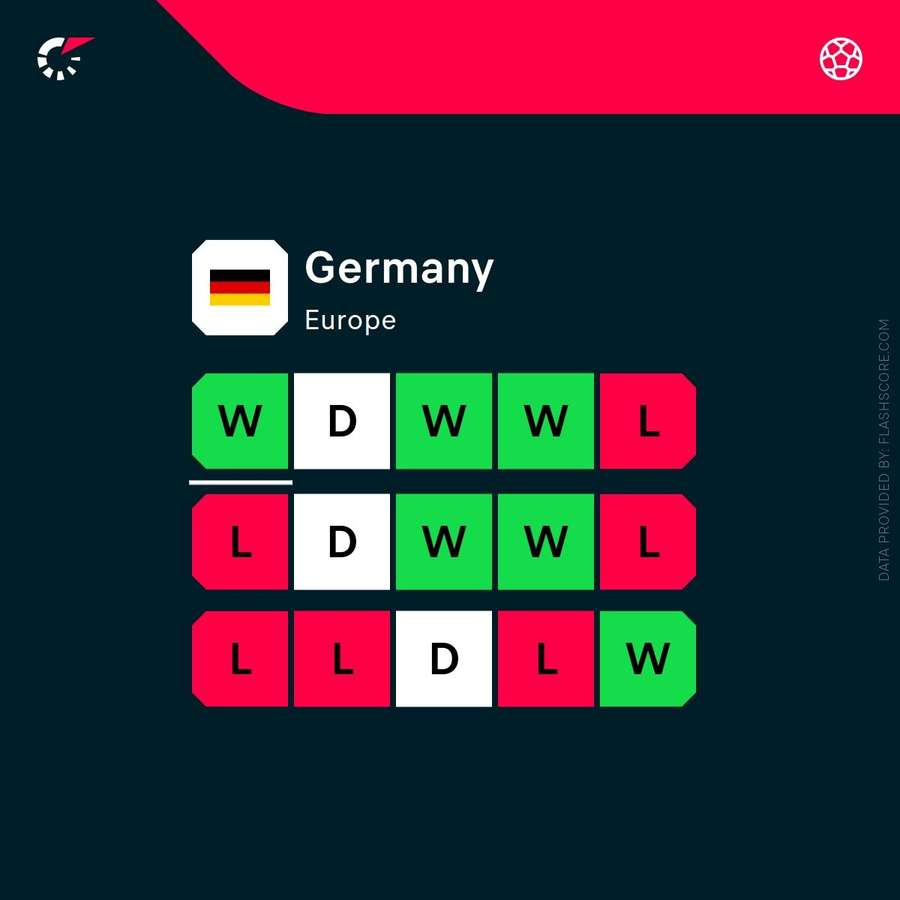
Germany also had problems with their opponents' five-man defence in the pre-tournament clash against Ukraine. This is where the 4-2-3-1 practiced by Nagelsmann has its limitations. If the opposing five-man defence cannot be lured away from their own penalty area, the DFB Team can hardly create any space.
Provided the national coach finds a new method to break down disciplined defensive backlines before the start of the tournament, there is no need to worry too much about this.
Group stage challenge
It sounds a little strange, but the biggest challenge at Euro 2024 awaits the German national team in the group stage.
With Scotland, Hungary and Switzerland, three unpleasant opponents have been drawn in the German group. The DFB Team, however, is the clear favourite against each of these sides.
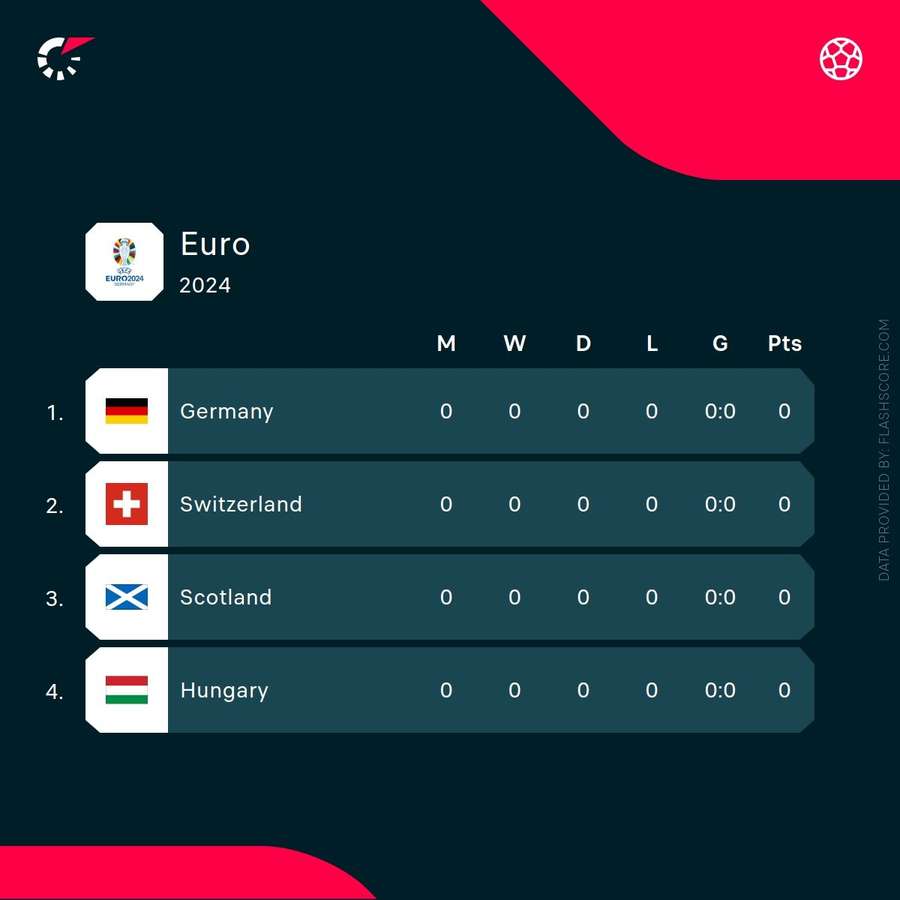
A dangerous starting position. At the 2018 and 2022 World Cups, they were eliminated after the preliminary round. The supposedly easy opponents proved to be the biggest stumbling blocks, mainly because they still have problems against deep-lying opponents.
If they get through the group stage, there could be real euphoria at home. Germany would then be capable of anything, perhaps even the title. Our prediction: The semi-finals are the end of the line.

